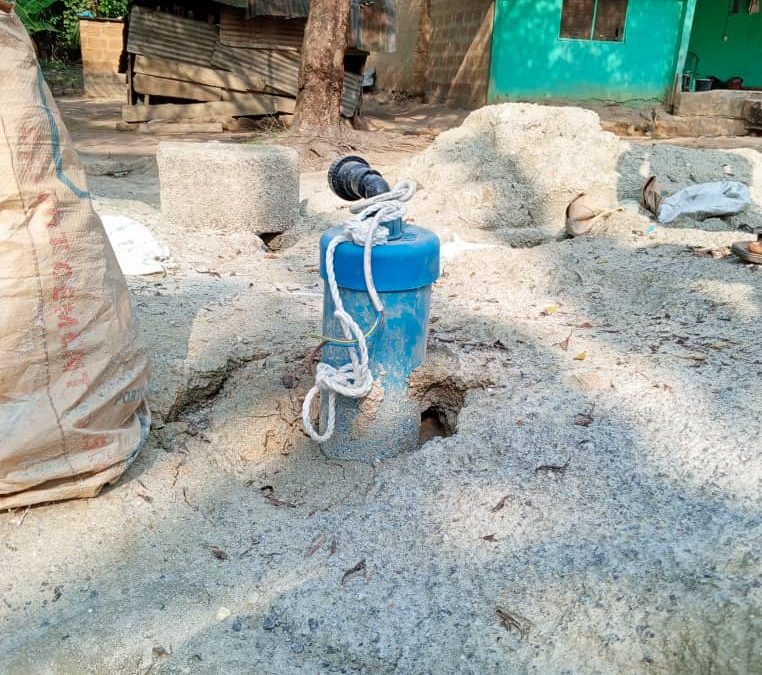The lack of adequate sources of potable water in the Eastern region town of Kplandey will soon be a thing of the past following the on-going works on the provision of two mechanized boreholes under the Facilitated Collective Action Process (FCAP), a partnership between the Fanteakwa South District Assembly and Advocates for Community Alternatives (ACA), a Non-profit-making organization.
Now, the boreholes have successfully been drilled while pumping machines have also been installed.
“We are now left with the erection of pillars so we can place tanks on them. I’m so happy about the speed with which construction works are progressing and I’m sure that the projects will be complete and put to use by the end of the second quarter of this year”, said Mr. Joseph Teye, Chairman of Kplandey FCAP Implementation Committee.
It is expected that after the pillars are erected and tanks are mounted on them, they will be connected to electricity to enable the pumps supply water into the tanks. Also, a management committee would be constituted to ensure the maintenance and effective management of the facilities before they are finally put to use.
“Residents currently depend on a manual borehole and some nearby streams for water supply and so when the project is complete, it will bring a great relieve to us, especially women and children because they would no longer have to walk long distances in search of water.”
With a $9,000 microgrant, the community members are drilling two boreholes at vantage points in the town in partnership with ACA and the Abuakwa South Municipal Assembly. The community has so far spent approximately $5,000 of its microgrant to reach this far.
SDG 6
Sustainable Development Goal 6 is about “clean water and sanitation for all.” It is one of the 17 Sustainable Development Goals established by the United Nations General Assembly in 2023. According to the United Nations, the goal is to: “Ensure availability and sustainable management of water and sanitation for all.
Safe and readily available water is important for public health, whether it is used for drinking, domestic use, food production or recreational purposes. Improved water supply and sanitation, and better management of water resources, can boost countries’ economic growth and can contribute greatly to poverty reduction.

Commentaires récents